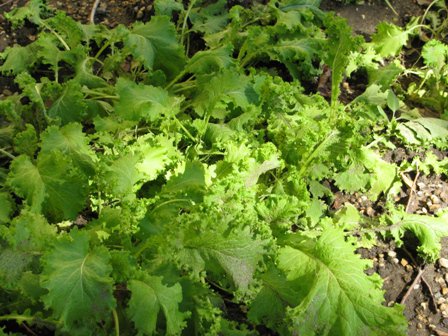- Apple diversity on display at Terra Madre.
- A drought-resistant sorghum for Karamoja. Read the script of a radio programme.
- CIAT advises Ugandan farmers: produce what you can sell, don’t sell what you can produce. Hmmmn.
- Local cow breeds and Protected Designation of Origin cheeses. There’s a conclusion here struggling to emerge, but I can’t recognize it. Help me.
- CABI pushes for crop diversification. Get in line!
- Where giant pumpkins come from.
- Nutritionists should get to grips with human diversity.
- 2nd State of the World’s PGRFA launched by FAO to much fanfare. And usual incorrect figures on genetic erosion. Oh I give up.
Nibbles: Wild Hordeum, Barley landraces, Funny cucumber, Dogs, Wild Manihot, Taxonomy, ABS, Capsicum farmer selection, Bulgarian genebank
- Crop wild relatives from genebank in use shock.
- Landraces from same genebank in use shock. Hopefully a full blog post is coming soon from the author himself.
- Would you eat this cucumber?
- Dog evolution, again.
- New wild cassava species found.
- Thank goodness for our name-based bioinformatics infrastructure, eh?
- The history of benefit sharing deconstructed. Nothing on ITPGRFA?
- Mexican chili farmers maintain rather than direct with their seed selection.
- My genebank is bigger than your genebank!
Giant southern curled mustard in the Traditional Croplands
I couldn’t identify one of the plants in the Traditional Croplands exhibit at the National Museum of the American Indian, but a quick post on their Facebook page solved the puzzle. Here’s the plant.

It turns out to be Giant Southern Curled Mustard, which GRIN suggests is Brassica juncea subsp. integrifolia var. crispifolia. This is described as an “old southern favourite,” or words to that effect, by many of the heirloom seed merchants I consulted online. There is also an ethnobotanical record online of the species being used by Native Americans, but only as a medicinal, at least in the book I was able to consult. Perhaps it is a relatively recent adoption.
Nibbles: Musa wild relative, Soil biodiversity, Wild sorghum hybrids, Millet diversity, Bees, Garlic core collection, Heirloom seed saving, Nutrition, Fungal conservation, Sacred places
- New(ish) banana wild relative found in Mekong. Photo by Markku Hakkinen.
- Conserving soil biodiversity.
- Ecological fitness of wild-cultivated sorghum hybrids equal to wild parent.
- Pattern of genetic diversity in pearl millet determined by artificial, not natural, selection.
- The latest on the troubles of bees.
- Garlic gets cored. Totally SFW.
- Seed saving in the Hudson Valley.
- West African leaders say agriculture should be about nutrition. As opposed to?
- International Society for Fungal Conservation established. And that’s about it for now, but there are some ideas about what it will do.
Nibbles: Pavlovsk, Baobab hybridization, Jackfruit, Vavilovia, Cowpea education, Lead, Bees, Banana wilt, Dariy cows, Pavlovsk, Drylands, School gardens, Genetic diversity in botanic gardens
- The value of Pavlovsk. Jeremy delivers a slap.
- CIRAD on kinky sex among the baobabs.
- “I had never heard that there were distinct varieties of the jackfruit, although of course such a thing was reasonable, so I naturally wanted very much to taste one.” Naturally.
- Wild relative of pea gets a weird hybrid in-ex situ conservation treatment.
- A Cowpea Story, an illustrative children’s book by Vicky Inniss-Palmer, tells the hopeful story of a cowpea named Catalina and her struggle to overcome illness and disease with the help of scientists. Meanwhile, scientists meet.
- Urban gardeners, beware lead. And nurture your pollinators.
- Reading this, anyone would think nobody had ever researched banana Xanthomonas wilt.
- Improved dairying in Kenya.
- Vavilov Institute’s comprehensive update on Pavlovsk.
- ICRISAT to put in place new market-oriented strategy which will use a “systems perspective in setting our priorities to ensure that all important issues along the dryland agriculture value chain are addressed.”
- Meanwhile, ASARECA asks for ideas on how to intensify one of those dryland systems in the face of climate change.
- ICIMOD promotes herbal gardens in schools.
- Botanic gardens get wrists slapped over their inattention to genetics.